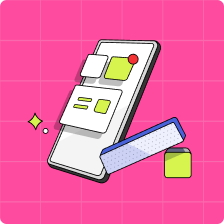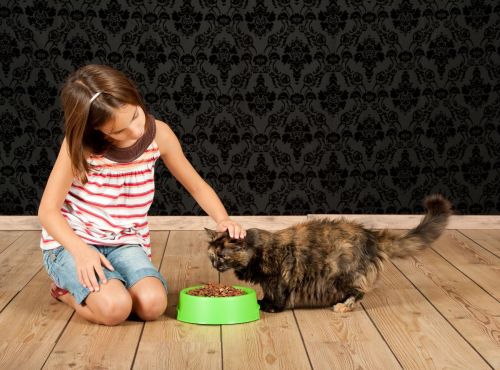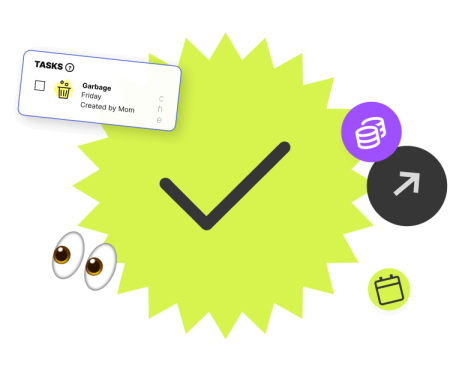Spring is in the air. And so is pollen. And dust. And that bright spring sunshine is making you realize just how, well, grimy the house has become over the long winter months in lockdown. It’s time for spring cleaning.
That’s the bad news. But the good news is that your kids and teens can help. What’s more, adding kids and teens to the chore chart pays even more dividends: it’s an opportunity for kids to feel useful and practice taking on tasks and challenges in life.
The benefits of giving kids chores
Helping out around the house also helps kids develop a sense of family belonging: that sense that they’re a part of a household “team.” Doing chores builds your kids’ understanding of and respect for what it takes to run a household. After all, any kid who has had to mop the mudroom floor is going to think twice before running through the house in dirty boots. Chores help build valuable life skills that kids will need when they move out and are responsible for cooking their own meals, cleaning their dorm room, doing the laundry, and figuring out how to pay their own bills.
Spring chores for kids and teens
So, this spring, why not get your kids on board and help out with seasonal chores, inside and outside the house? Here are some suggestions for spring chores for kids of all ages:

Chores for 4- and 5-year-olds
- Make their own bed
- Put dirty clothes in the laundry hamper
- Emptying wastebaskets
- Bring in the mail or the newspaper
- Set and clear the table
- Pulling weeds
- Use a hand-held vacuum to pick up crumbs (this one is fun!)
- Watering the garden
- Unloading utensils from the dishwasher
Chores for 6- and 7-year-olds
- Sorting laundry
- Sweeping floors
- Helping to make and pack lunches
- Raking grass and leaves
- Planting seeds in the garden
- Feeding pets
Chores for 8- and 9-year-olds
- Making simple dinners, like baked ham-and-cheese frittata
- Take out trash and recycling
- Load the dishwasher
- Fold and put away laundry
- Dusting, vacuuming, sweeping, and mopping
Chores for 10- and 11-year-olds
- Washing dishes
- Emptying the dishwasher
- Walking the dog
- Washing the car
- Helping to defrost and clean the fridge and freezer
- Helping with meal planning and making grocery lists
- Organizing food in the pantry
Chores for teenagers
- Cleaning refrigerator shelves and doors
- Cleaning the bathroom
- Cleaning the kitchen
- Cooking dinner
- Mowing the lawn and trimming hedges
- Babysitting younger siblings
- Troubleshooting tech – when it comes to setting up your new iPad or wireless printer, your teen may be the savviest person in the house.

Looking for more chore ideas? Read more about the most popular summer chores and 7 winter chore ideas for kids
7 tips for how to get your kids to do chores
Okay, now you’ve got a list of spring chores that need to be done. How to get your kids on board?
1. Start assigning chores when kids are young
Even little kids are capable of helping out! And the earlier your kids get used to the idea that they’re expected to help out, the more they’ll consider it a regular part of family life.
2. Don’t insist on perfection
It’s better to say, “Thanks for sweeping the floor!” rather than pointing out the few crumbs your 8-year-old missed.
3. Let kids figure out systems that work for them
If your 12-year-old is happy living out of “clean” and “dirty” laundry baskets, that might be an appropriate trade-off. At least she’s doing her own laundry and wearing clean clothes, right?
4. Be specific about tasks
“Clean your room” might be too vague for a kid who doesn’t know where to start — and chances are, they won’t. Rather, be specific. Let your child know they need to put all the dirty clothes in the laundry hamper, make the bed, put all the books neatly back on the shelf, and find three old toys or books to donate.
5. Be consistent
Make sure your kids know that they’re expected to follow through—otherwise they may try to avoid or put off chores in the hope that you’ll give up and do it for them.
6. Try not to nag
However frustrating it is, you’re better off calmly asking “Please set the table” (then wait a few minutes for your child to respond), rather than yelling at them or constantly nagging.
7. Consider tying privileges to completion
Kids are not always the most motivated to complete their chores and tasks. However, there is an easy way to make sure that they get their work done – tie privileges to completion.
Teachers have been using this technique for years. They allow children to use some kind reward such as going on the computer or watching TV after completing their work. This encourages them to finish their homework in order to get what they want. You can do the same thing with chores. “You can watch TV as soon as you’ve fed the dog and taken your laundry to your room.”
Use Mydoh to set up and pay kids for spring chores
The Mydoh app lets parents create and assign chores to kids, and then automatically pays kids once those tasks are completed each week. It can be a great way for both parents and children to keep track of kids’ responsibilities, and to help kids develop respect for earning money.
Some parents choose to tie chores to allowance, while others don’t. Some parents take a hybrid approach: kids are expected to do “standard” chores, simply because they are part of the family. But they can earn cash for special tasks, like washing the car or spending a couple of hours helping clean out the garage. There are pros and cons to getting paid for chores. Whatever approach you take, know that the benefits of doing chores extend well beyond a cleaner house or tidier garage.
When kids get paid for chores using the Mydoh app, they can buy things they’d like using their Mydoh Smart Cash Card, or save for larger goals. And when kids learn how to master basic (and then more advanced) chores and feel like they’re making a difference, that builds resilience: they learn that they can handle challenges and make a difference in the world. Next time your child is faced with a tricky situation, they can draw on that mindset to get the job done.
Use our allowance calculator to help plan how much to pay your kids for completing chores.
Learn more about Mydoh and how it can help your kids learn responsibility and build good money habits early in life.
Download Mydoh today to learn more.
This article offers general information only and is not intended as legal, financial or other professional advice. A professional advisor should be consulted regarding your specific situation. While the information presented is believed to be factual and current, its accuracy is not guaranteed and it should not be regarded as a complete analysis of the subjects discussed. All expressions of opinion reflect the judgment of the author(s) as of the date of publication and are subject to change. No endorsement of any third parties or their advice, opinions, information, products or services is expressly given or implied by Royal Bank of Canada or its affiliates.



















